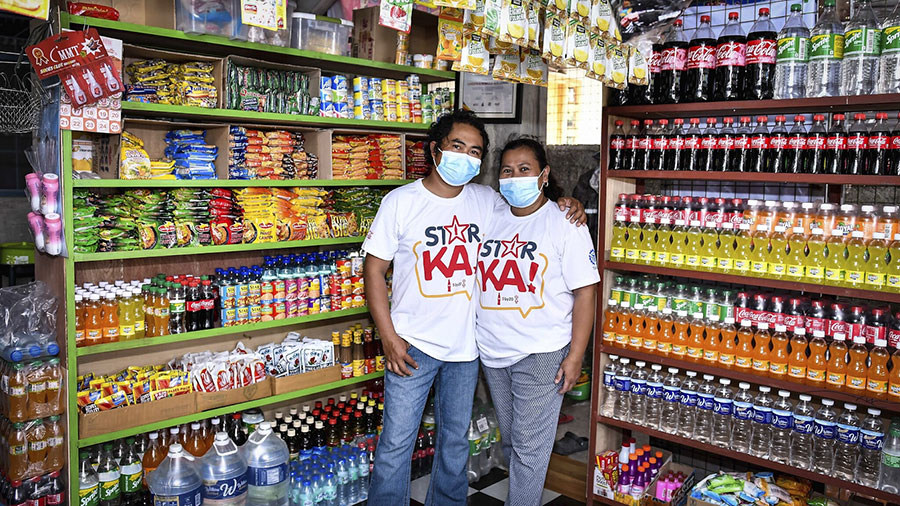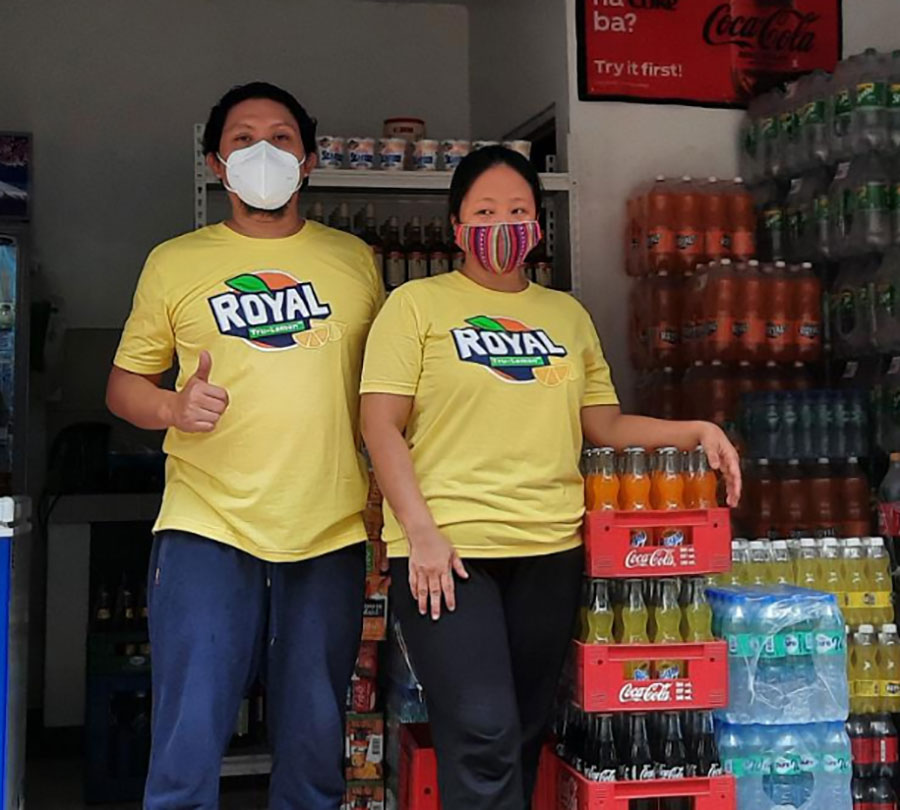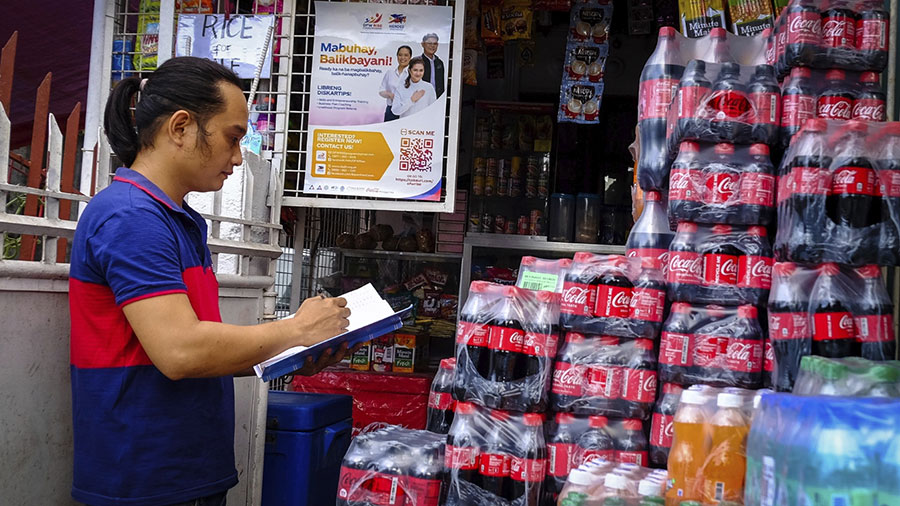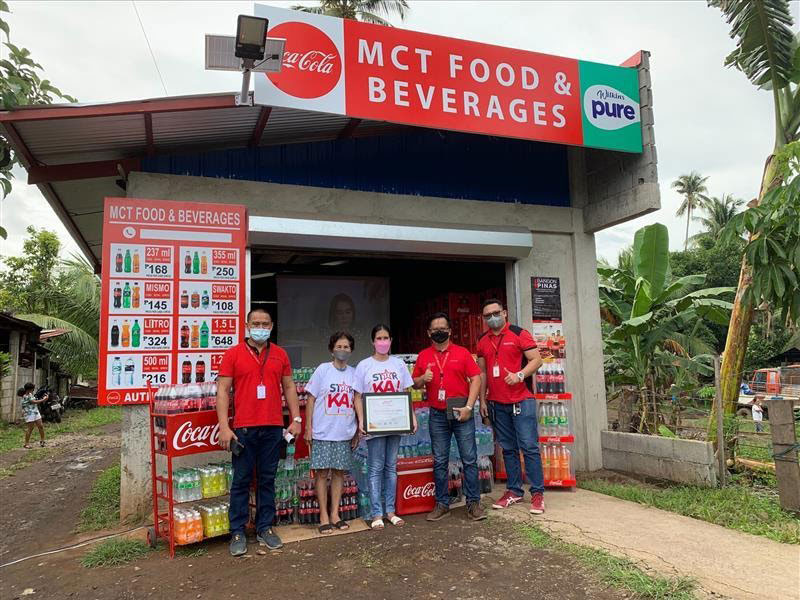PHILIPPINES — In the past two years, countless Filipinos have recharted their journeys—taking on new roles to meet the challenges of the pandemic, forging new paths to better secure their dreams for themselves and for the people they love.
Among them are the OFWs who had to return to the Philippines as safety and austerity measures around the world heightened. Some have applied themselves to exploring entrepreneurship and tending to community-centered businesses while in reunion with their families. The Overseas Workers Welfare Administration (OWWA) is recognizing the grit, industry, and ingenuity of these OFW-returnees through the Balik Bayani awards—and five of the awardees are current beneficiaries of the CCBPI Bangon Pinas program.
New opportunities for Filipinos through Bangon Pinas
Coca-Cola Beverages Philippines, Inc.—the local bottling arm of Coca-Cola—understands that charting new avenues, particularly at critical junctures and in periods of great insecurity, takes a monumental amount of courage and strength of spirit. As the Company draws inspiration from the many Filipinos who are rebuilding, it is likewise ensuring that they can rely on a stable cache of support and that they can leverage Coca-Cola’s established standing and extensive reach in realizing their reaffirmed goals.
Bangon Pinas traces its roots to Balik Pinas, a CCBPI initiative that extended help to repatriated overseas Filipino workers whose careers had been disrupted due to the pandemic and the global crises that followed.
Through Bangon Pinas, CCBPI continues to heed the call to assist in the revival of local communities and in the safekeeping of the welfare of Filipinos whose lives were disrupted by COVID-19. The original program has since expanded to cater to all Pinoys who want to start their own business as part of the Coke family—an opportunity to become an entrepreneur supported by a global beverage brand.
“We have all witnessed—and experienced—the far-reaching challenges of the pandemic, and how it has affected hardworking Filipinos from all walks of life. From the very onset of the pandemic, we knew that CCBPI had to further intensify its advocacy for local communities and, in particular, for the MSMEs and the families that run them,” shares Gareth McGeown, CEO and President of CCBPI.
A journey with Coca-Cola
Bangon Pinas beneficiaries become part of the Coca-Cola family as a distributor, wholesaler, or a community reseller—and Coca-Cola ensures that they are given the proper guidance on setting up their business and sustaining its growth. Trained in business management basics like understanding proper cash flow and inventory management, and equipped with Coca-Cola resources, these new MSMEs are empowered to stand on their own as business owners.

Junedyn Guillermo was among the OFWs who were forced to return to the Philippines due to the consequences of the pandemic. But starting February 2021, Junedyn and his wife have been wholesalers in Nueva Vizcaya, earning enough to support their family and to rebuild their savings. Junedyn says, “Our partnership with Coke became not just our primary income generator but our new foundations for the future as well. Coke is always extending its support and guidance to all its partners, starting with giving hope to us micro-entrepreneurs.”

In Las Piñas City, Rodolfo Mondragon operates Mondragon Beverages Trading with his wife, supplying Coca-Cola products to his community. He had been serving as an aircraft mechanic in Singapore for 14 years and flew back to the Philippines to be with his family amid the health crisis. Rodolfo applied for the Bangon Pinas program after learning about it on social media.

In Bicol, Salvador Sato IV is running a Coca-Cola outlet with his family. He had chosen to stay in the country when the pandemic struck while he was on vacation. In the restrictions that followed, he dipped into his savings and he knew he needed to look for a new source of livelihood. When his cousin introduced him to the Bangon Pinas program, he took the opportunity and applied, and now counts Coca-Cola as having been integral to the continued well-being of his family. Salvador says, “Coca-Cola is not just a Company to us—it’s like family, because it’s willing to help in times of great need.”

In Panabo in Davao del Norte, Sheryl Atienzar started building her Coca-Cola business after she was advised to look into the Bangon Pinas program. Sheryl had been a university lecturer in Phuket, Thailand who decided to retire and return to her hometown to start anew. According to Sheryl, she is enjoying her time managing a sustainable business while surrounded with family.

In Misamis Oriental, Christine Torres has been operating a Coca-Cola partnership for six months with her sister and has since doubled its scale and profit. Christine had been working in an advertising company in Dubai since 2008 and was contemplating if she should return to the Philippines to settle. One of her OFW friends shared with her a news feature on Bangon Pinas—and Christine knew that she had to seize the perfect timing of the program. Christine says, “The business is doing good, and we’ve achieved so much in just a short time. My sister and I have succeeded in joining the biggest canteen in our town, and we can only grow our business more as we serve the community.”
Bangon Pinas is testament to Coca-Cola’s commitment to contributing to the restart of the national economy—reaching out to Filipinos and cultivating stronger communities. Since the program’s launch, CCBPI has fielded close to 600 inquiries, successfully launching almost 100 new business owners. The company has been working to further expand the initiative’s scale.
“Beyond meeting business goals, it was imperative that we pursue and realize our main objectives as a company—to uplift the lives of the Filipino people, more so during trying times,” says McGeown. “Our Bangon Pinas program is one of the ways we do this, and it’s heartening to listen to the stories of beneficiaries who are again building on their hopes through our initiative.”
CCBPI has always placed service at the very heart of Coca-Cola’s 109-year presence in the country. Filipinos have been granting Coca-Cola the privilege of being witness to both vibrant celebrations and quieter moments of happiness, and CCBPI has always worked to return this trust and loyalty twofold—especially when local communities face great hardship.
For more information on Coca-Cola’s Bangon Pinas program, you may contact Coca-Cola’s Contact Center at (02)-8813-Coke (2653).



















